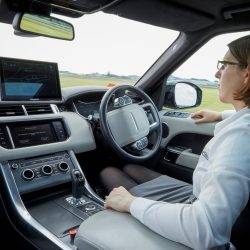August 2, 2017
Certain staff a ‘major block’ to adoption of new technology in local government
 Some individuals within local government are holding back tech to preserve the status quo – a new survey suggests. According to the research, these people feel threatened by new technology and believe it will be disruptive to their ways of working. While the survey by 8×8 of staff working in local government suggested a significant appetite for new technology, more than a fifth (22 percent) say certain individuals are holding back tech adoption to preserve the status quo. This view is more prevalent amongst those in IT procurement, where more than a third (35 percent) believe colleagues are standing in the way of technology because it will disrupt what they already have in place. Only 51 percent of respondents believe senior management understand the importance of new technology and just 21 percent think they invest enough money to stay up to date with the latest developments. This contrasts with the private sector, where over half (56 percent) believe there is sufficient investment in new technology.
Some individuals within local government are holding back tech to preserve the status quo – a new survey suggests. According to the research, these people feel threatened by new technology and believe it will be disruptive to their ways of working. While the survey by 8×8 of staff working in local government suggested a significant appetite for new technology, more than a fifth (22 percent) say certain individuals are holding back tech adoption to preserve the status quo. This view is more prevalent amongst those in IT procurement, where more than a third (35 percent) believe colleagues are standing in the way of technology because it will disrupt what they already have in place. Only 51 percent of respondents believe senior management understand the importance of new technology and just 21 percent think they invest enough money to stay up to date with the latest developments. This contrasts with the private sector, where over half (56 percent) believe there is sufficient investment in new technology.









 Three quarters (75 percent) of businesses expect to increase the number of high-skilled roles over the coming years, but 61 percent fear that there will be a lack of sufficiently skilled people to fill them. This is according to the 2017 CBI/Pearson Education and Skills Survey which highlighted that 62 percent see strong competition for candidates with appropriate qualifications as the most widespread cause of skills shortage, followed by a lack of candidates with appropriate qualifications (55 percent). According to the report, while the Brexit debate generates plenty of heat, ‘it’s the white heat of technological change that will mean huge change to the jobs of 2030’. Add that to the obvious question about what skills we’ll need to ‘home grow’ in the absence of free labour movement, and the skills gap is brought into sharper relief argues the report.
Three quarters (75 percent) of businesses expect to increase the number of high-skilled roles over the coming years, but 61 percent fear that there will be a lack of sufficiently skilled people to fill them. This is according to the 2017 CBI/Pearson Education and Skills Survey which highlighted that 62 percent see strong competition for candidates with appropriate qualifications as the most widespread cause of skills shortage, followed by a lack of candidates with appropriate qualifications (55 percent). According to the report, while the Brexit debate generates plenty of heat, ‘it’s the white heat of technological change that will mean huge change to the jobs of 2030’. Add that to the obvious question about what skills we’ll need to ‘home grow’ in the absence of free labour movement, and the skills gap is brought into sharper relief argues the report.





















July 11, 2017
Creativity is the new productivity in the modern era of work and workplaces 0
by Serena Borghero • Comment, Facilities management, Workplace design
(more…)